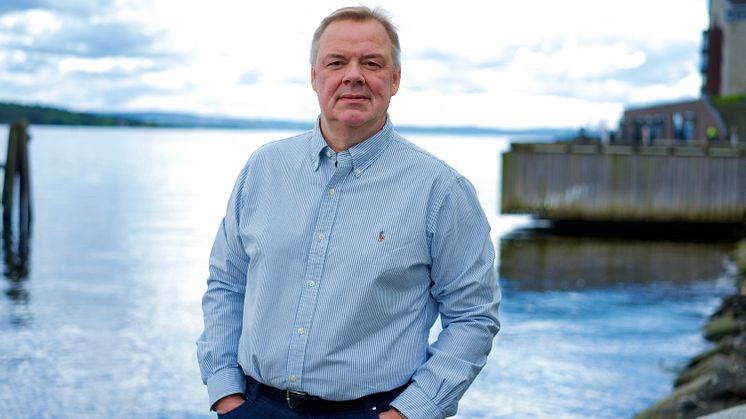
Press release -
Storebrand strengthens its commitment to nature
New policy in place as of December 1st.
"More than half of the world’s total GDP is moderately or highly dependent on nature and its services. Yet, the value of nature and “ecosystem services” has been largely unacknowledged by companies and their investors. This is despite the fact that failure to act could result in collapsing food systems, loss of livelihoods and pose a systemic risk to the global economy" says Jan Erik Saugestad, CEO Storebrand Asset Management.
For several years, Storebrand Asset Management has been committed to halting and reversing the loss of biodiversity. Through investments and dialogue with its investees, in coalitions, and in support for research nature has been sat on the agenda. Storebrand now strengthens its actions, in recognition of the financial risks and opportunities associated with this challenge.
With the adoption of the policy, the precautionary approach will be applied more active when making investment decisions. The new policy also sends a strong signal to the market of what we expect.
Nature loss impacts the economy
With instant effect, four companies in the mining industry are excluded. Storebrand will no longer invest in companies with mining operations that conduct marine or riverine tailings disposal, companies involved in deep sea mining, and companies that derive 5 % of their revenues from drilling in Arctic areas that are considered especially vulnerable and valuable.
Storebrand's existing deforestation commitment, which had a special focus on palm oil, soy, cattle products and timber, will be expanded to include deforestation or conversion for production of cocoa, rubber, coffee, and mining. Companies contributing to this are being mapped and assessed for targeted engagement or exclusions, as a step forward for us to achieve our goal of eliminating commodity-driven deforestation in our portfolios by 2025. In addition, companies that lobby against agreements which promote sustainable use of nature, such as the new goals that will be adopted by the Convention on Biological Diversity later this year in Montreal, will risk exclusion.
Working in partnership
Factors such as climate change, habitat loss, pollution and the use of pesticides are all contributing to the loss of biodiversity, with major implications for businesses as well as the planet. An increasing loss of biodiversity can affect companies’ ability to create value for investors in the long term. Companies must understand their dependency on and impact on nature.
Through our own stewardship activities, we are calling upon companies to set biodiversity targets, assess and reduce their negative impact. Increased reporting and transparency will be key, and companies will be expected to disclose the co-ordinates and footprint of their main operations.
Compared to climate change where carbon dioxide emissions are measured, biodiversity loss is more challenging to measure and compare, with impacts often localised and dispersed throughout supply chains, and where information and transparency from companies on the specific locations of their operations is still limited. In this context, partnerships and coalitions like Nature Action 100 and the future TNFD will be key levers for greater integration of biodiversity challenges.
"The investment industry cannot solve the biodiversity crisis by itself. To succeed we need collaboration with governments, corporates and finance. We need better regulations on all levels and better reporting. There are few regulatory incentives for companies to curb practices that are harmful to nature. I would like to see governments step up when they meet in Montreal in December", concludes Jan Erik Saugestad.
Companies that are excluded:
1. First Quantum Minerals
2. Harmony Gold Mining Co Ltd
3. Newcrest Mining
4. TMC – The metals company
Topics
Categories
Storebrand is a Nordic financial group, delivering increased security and financial wellness for people and companies. We offer sustainable solutions and encourage our customers to make good economic decisions for the future. Our purpose is clear: we create a brighter future.
Storebrand has about 40.000 corporate customers, 2 million individual customers and manages NOK 1 008 billion. The Group has its headquarters at Lysaker outside of Oslo, Norway. Storebrand (STB) is listed on Oslo Stock Exchange.
Visit us at www.storebrand.no



